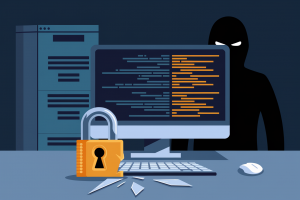Cyber Attacks in Asia Reflect Global Cybersecurity Issues
![]() It gets little coverage here, but adding to the overall picture of worldwide cyberattacks, a couple of recent stories from Asia indicate their own growing problems with security.
It gets little coverage here, but adding to the overall picture of worldwide cyberattacks, a couple of recent stories from Asia indicate their own growing problems with security.
In Hong Kong, the Hong Kong Stock Exchange was briefly affected by a hacker attack earlier this week.
“The Hong Kong stock exchange was forced to suspend trading in stocks including HSBC Holdings after hackers broke into the exchange’s website on Wednesday, preventing investors from accessing company announcements made during the midday break.”
The contingency plans for continuance of operations invoked some non-technology alternative methods.
“If the website remains unstable on Thursday, the exchange’s bulletin board will be used for dissemination of information but the stocks will be not suspended, said Mark Dickens, head of listing at HKEx.”
The attack, whose underlying nature has not been thus far reported, appear to lack the seriousness of a full-on information compromise. Yet the attack was classified as “malicious”:
“Our current assessment that this is a result of a malicious attack by outside hacking,” the chief executive of Hong Kong Exchanges & Clearing (HKEx) Charles Li told reporters after the company announced interim results.”
An unrelated report from China states that the country has become one of the world’s biggest victims of cyberattacks.
“China was hit by nearly 493,000 cyberattacks last year, about half of which appeared to have originated from foreign countries, including the United States and India, according to a report issued on Tuesday by the National Computer Network Emergency Response Coordination Center of China (CNCERT/CC), the country’s primary computer security monitoring network.”
China has a reported 485 million internet users, making it the largest population in the world, and is increasing by ten percent annually. China also appears to have user education issues as indicated in the following:
“Moreover, the lack of awareness about cyberattacks and necessary protection measures among the vast Chinese Internet users make China more vulnerable to cyberattacks, Zhou added.”
Quoted throughout the article is Zhou Yonglin, head of the CNCERT/CC’s operation and management department.
The threat of cyber attack is global, and as classically characterized, is certainly most likely to be driven by profit, increasingly driven by malice, and at other times it has been reported to be driven by national security and intelligence activities. These recent reports indicate the global specter of these threats. The global internet audience shares the risk of online threats and more could be done to address this. The knowledge needed to mobilize a worldwide response to cyber crimes in particular could potentially use the technology advantages of Big Data, forensics, and information sharing.
A message from John Furrier, co-founder of SiliconANGLE:
Your vote of support is important to us and it helps us keep the content FREE.
One click below supports our mission to provide free, deep, and relevant content.
Join our community on YouTube
Join the community that includes more than 15,000 #CubeAlumni experts, including Amazon.com CEO Andy Jassy, Dell Technologies founder and CEO Michael Dell, Intel CEO Pat Gelsinger, and many more luminaries and experts.
THANK YOU















